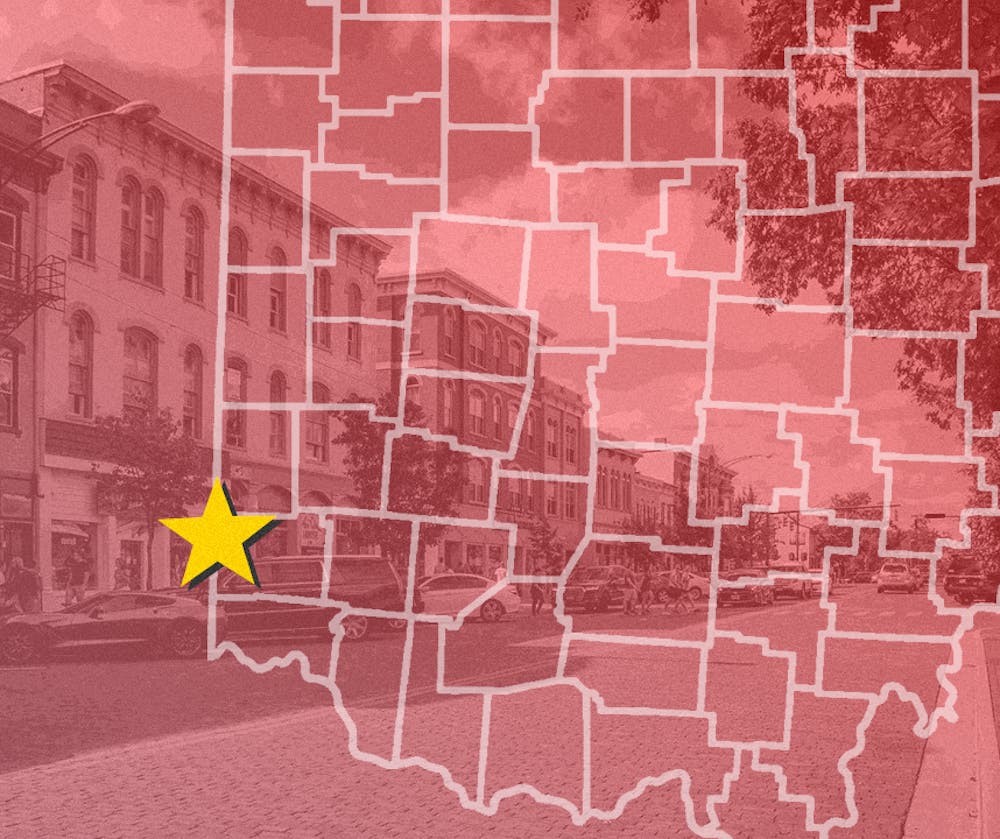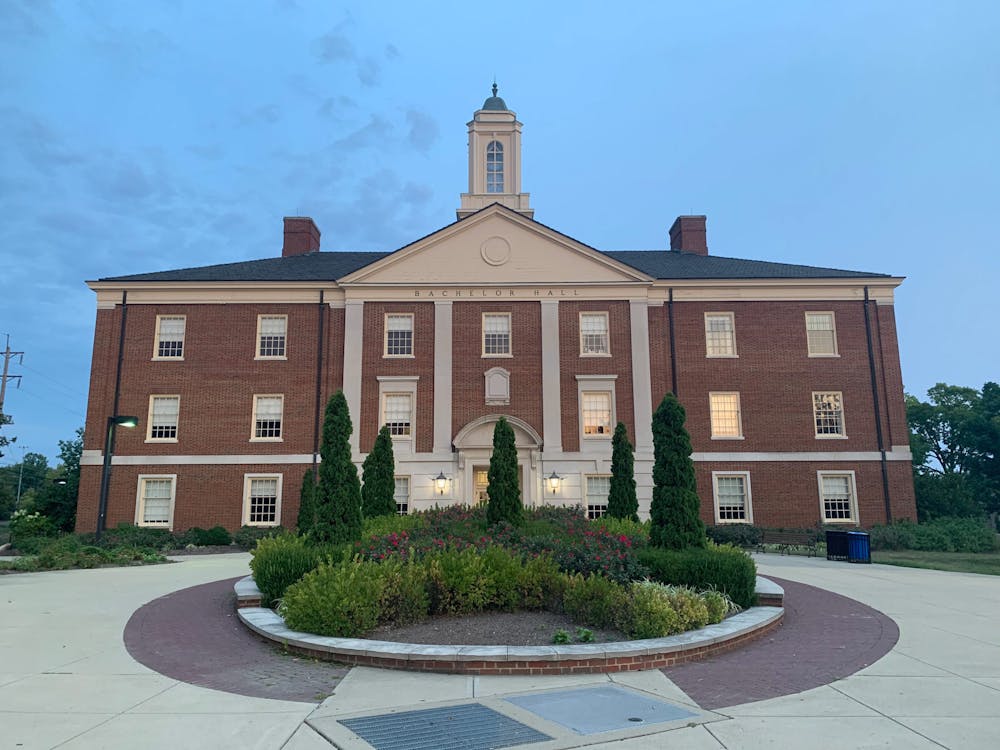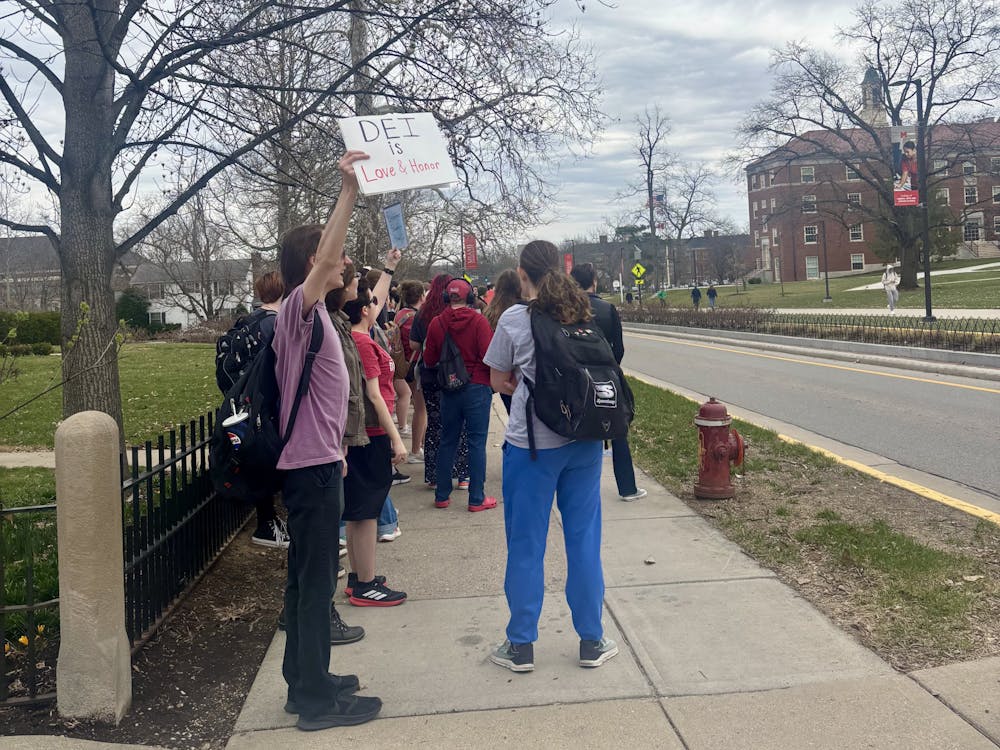Oxford City Council accepted two new grants for the city and heard about how a third was being used at its March 1 meeting.
Two grants were accepted as resolutions.
The first, a $12,000 Oxford Community Foundation Grant, will go toward converting one large ballfield in Oxford Community Park into three smaller youth fields. The second, a $10,000 Ohio Department of Natural Resources Grant, will enable the city to plant additional trees Uptown.
Service Director Mike Dreisbach said Oxford’s urban canopy has been depleted in recent years due to the Emerald Ash Borer, an invasive beetle species By planting additional trees, the city hopes to provide more shade Uptown and reduce the impact climate change has in Oxford.
Dreisbach said the city will match the value of the second grant, and aims to plant the trees this fall.
“Our first priority will be supplementing the Mile Square, where we’ve had loss,” Dreisbach said. “From there, if we have extra funds, we’ll go to the park system.”
Both grants were unanimously approved by Council.
Additionally, Cecilie McGhehey, a project director at Miami University, spoke about how a Human Resources and Services Administration (HRSA) grant from 2019 has helped her team combat substance abuse in Oxford.
The grant, part of HRSA’s Rural Communities Opioid Response Program (RCORP), is intended to help the community respond to the opioid crisis. Butler County has one of the highest overdose rates in Ohio, and McGhehey said its rural setting presented unique challenges along with the pandemic.
“Due to its rural nature, these areas face unique challenges … in prevention, treatment and recovery efforts in our community,” McGhehey said. “Unfortunately, the isolation and lack of access to treatment and untreated mental illness during the pandemic has only accentuated this issue.”
With the financial support of the HRSA grant, Miami partnered with the Coalition for a Healthy Community, McCullough-Hyde Memorial Hospital, Talawanda School District and other area partners to help residents struggling with substance use disorders.
This year, McGhehey said the partners launched a peer connection program at McCullough-Hyde to connect struggling community members with others who have gone through the recovery process. The peers offer their support three days a week in the hospital, and may follow up with people struggling with substance abuse for up to a year afterward.
Enjoy what you're reading?
Signup for our newsletter
At Miami, the grant has supported Generation Rx, a student-run advocacy group that educates other students about safe medication. The university’s Student Health Center has also been able to screen students and refer them to treatment if they are struggling with substance abuse.
Within Oxford, McGhehey and her community partners have sponsored drug take-back events, medication safety presentations and medication drop boxes.
While the grant hasn’t run out yet, McGhehey said the initiatives being started are designed to survive even when funding dries out.
“We are lucky enough that a lot of members of our consortium are part of other groups in our community, which helps with sustainability,” McGhehey said. “Even when this grant funding will ultimately run out at a time, there are going to be other opportunities because we have people involved in other groups with ears listening in for other grants.”
City Council will meet again at 7:30 p.m. on March 14, in the Oxford Courthouse.




